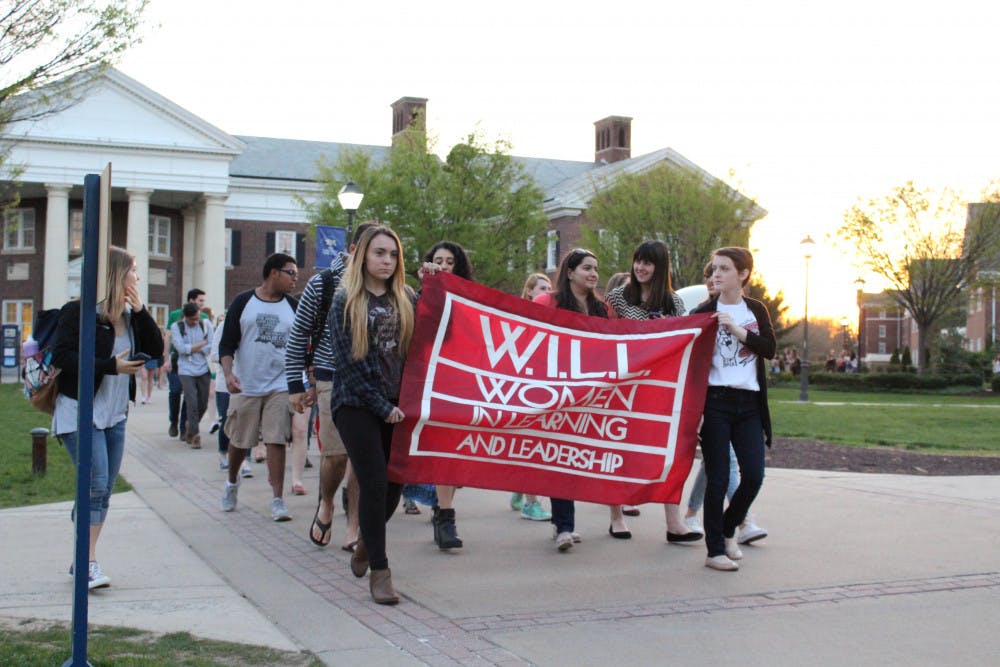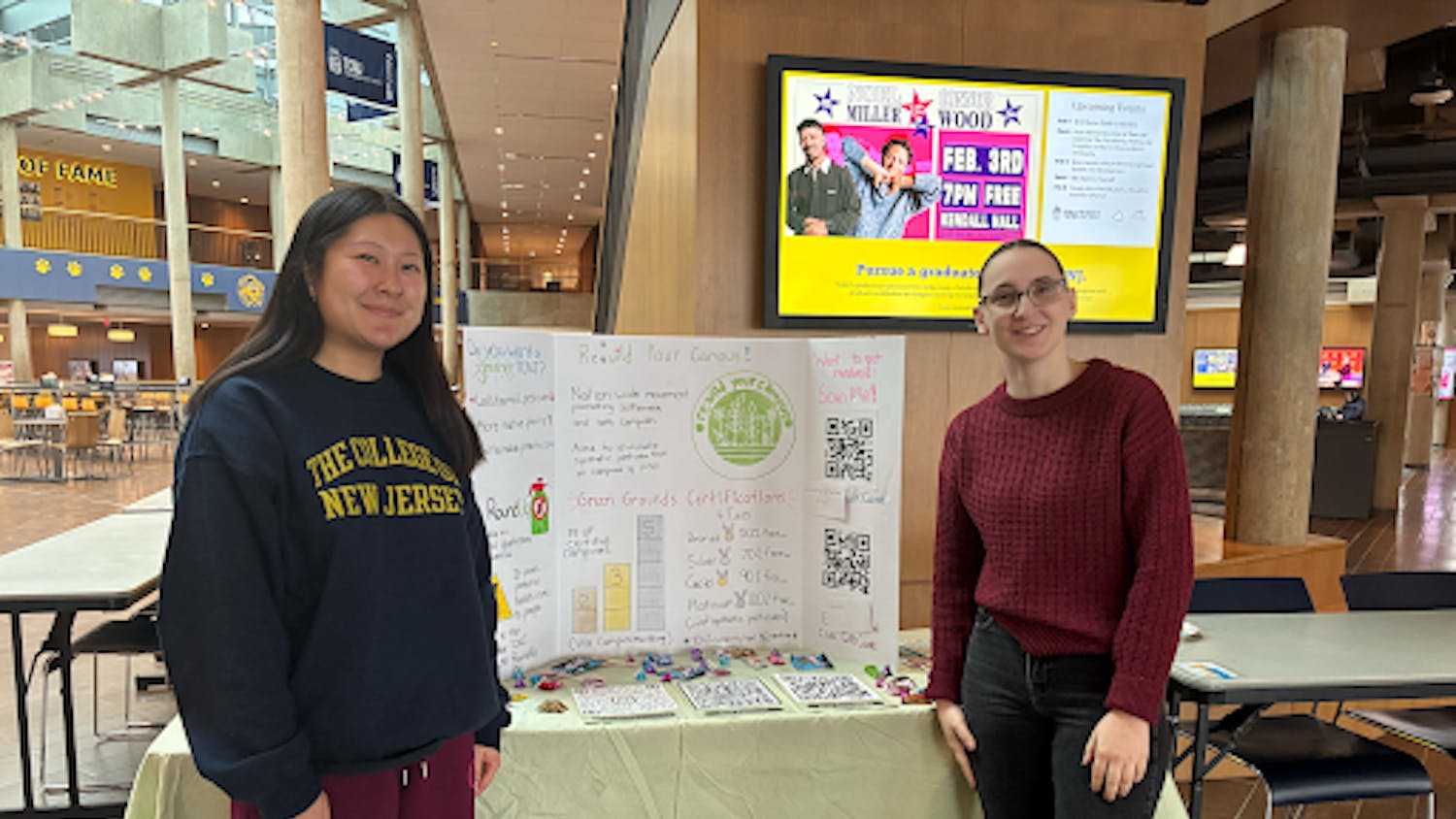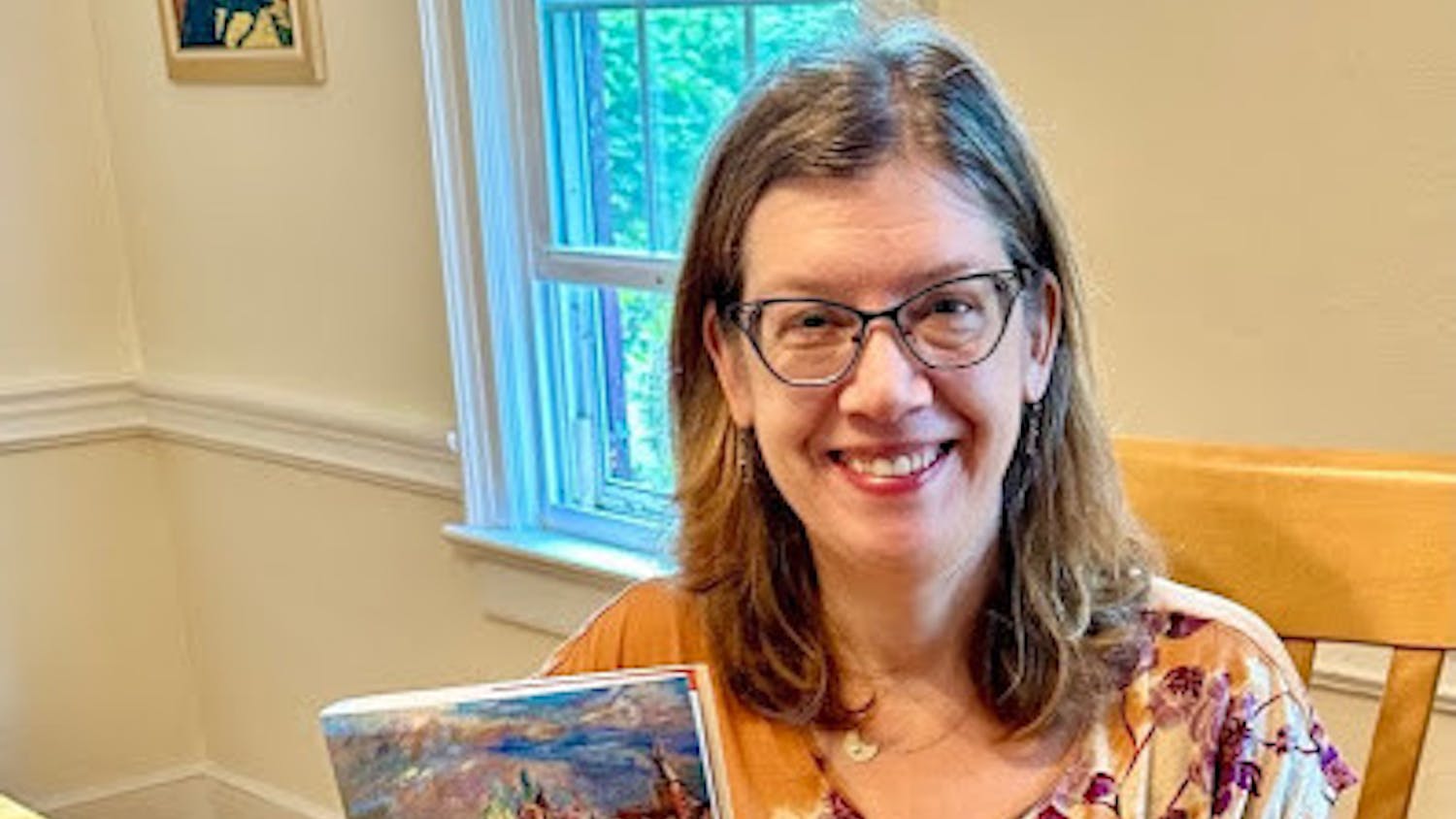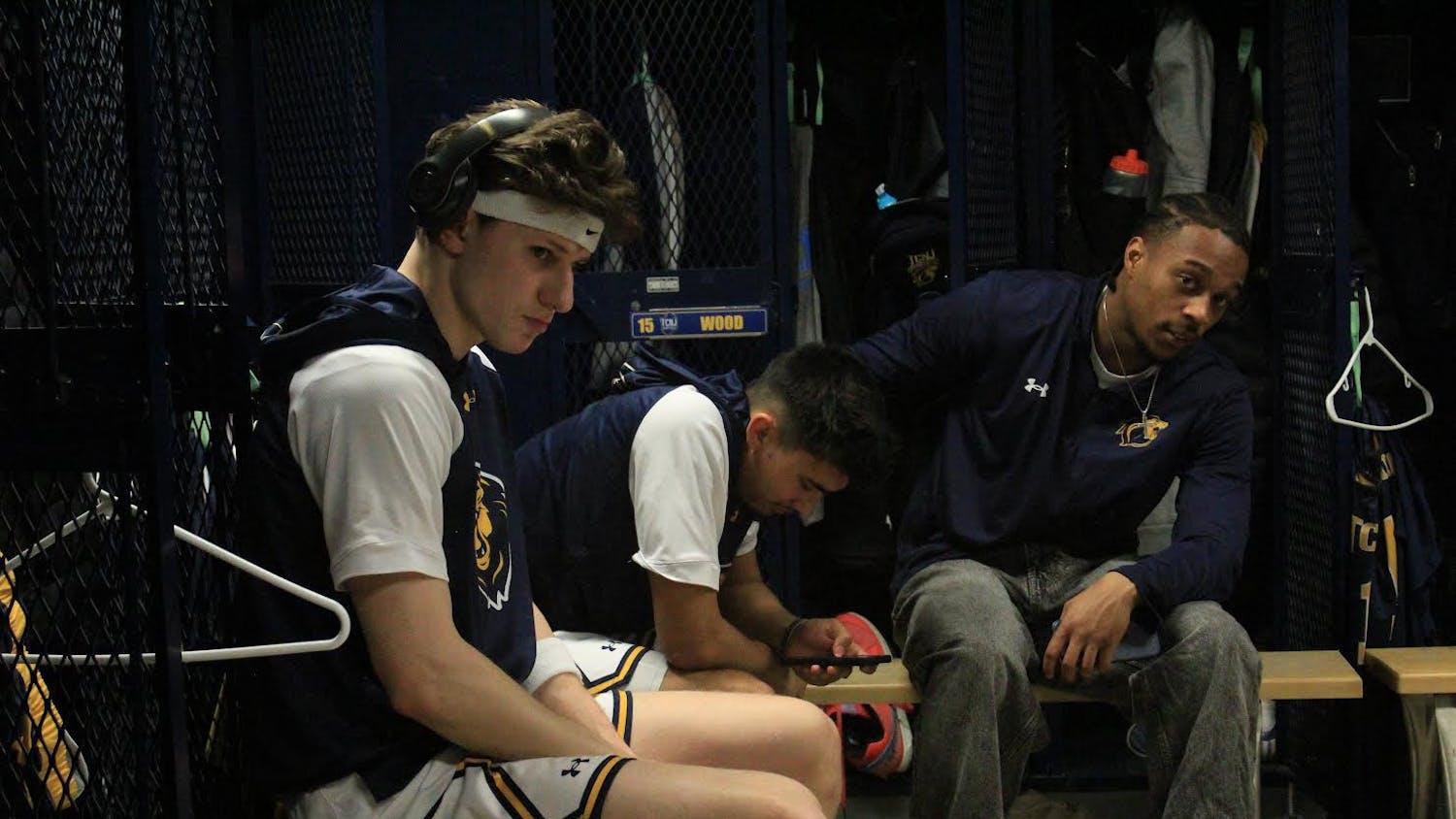By Elise Schoening
Features Editor
When asked if you or someone you know has experienced sexual assault or harassment, the answer is likely yes.
Such was the case at Take Back the Night on Tuesday, April 19. The annual event is celebrated at college campuses across the nation during Sexual Assault Awareness Month in April. Take Back the Night is an evening dedicated not only to supporting survivors, but also to encouraging them to share their stories in an effort to dispel the stigma surrounding the issue of sexual assault. This year, students and staff members alike gathered in the Business Building Lounge to show their support for the cause.
“I doubt there is a woman in this room who does not have a story of a time she experienced unwanted sexual attention of any kind,” said Rosie Driscoll, a sophomore women’s and gender studies major and the executive chair for Women in Learning and Leadership (WILL) , the organization that hosted the event. “So if you or a woman you know was catcalled, sexually harassed or assaulted, please stand up.”
Everyone in the room, regardless of gender, rose from their seats and stood in silence for a few moments as the gravity of the matter sunk in.
With such a high level of sexual assault on college campuses in the nation, it’s not surprising that everyone in the audience that night had been personally affected by the issue in some capacity.
“If we look at the data that shows roughly one in five women and one in 19 men will be victims of sexual violence while enrolled in College, that’s roughly 2.2 million women and 424,000 men who are likely to be victimized,” said Jordan Draper, the Title IX coordinator for the College.
“This data does not include members of the LGBTQ community,” Draper continued. “But research shows that they are two to three times as likely to experience sexual violence while trying to pursue an education.”
Sexual assault on college campuses is an issue that is rarely discussed or acknowledged, but certainly not because it doesn’t happen. Instead, an overwhelming number of students don’t report their sexual assault.
In this way, Take Back the Night offered an opportunity for survivors to share their stories in a room free from judgment and disbelief. Stationed in the last row of seats were a number of faculty members ready to offer support to anyone in need.
“This event is to tell students that there are people who believe them and listen to them,” Driscoll said. “Many people don’t ever talk about their assaults, and we’re trying to shift from a culture of shame to a culture of support.”
After discussing statistics and available sources, the event moved outside for an active march around campus. Together, students of the College traveled past Eickhoff Hall and the freshman dorms, all the while chanting, “Hey hey ho ho, sexual assault has to go.”
“The purpose of the march portion is to make the event visible to community members who did not attend,” Driscoll said. “Sexual harassment happens here. It happens around the loop. It happens at Rho plenty. It happens off campus. We can’t deny that.”

The group then returned to the Business Building for the final portion of the event — an open mic where survivors were invited to share their stories. Four brave students stepped forward. Two told personal tales of rape and repeated abuse, while the others spoke of friends who had been victims. For one student, the event marked the first time she publicly acknowledged or spoke of her rape.
“Personal stories are so important. They put a human face on what would otherwise just be a number or statistic,” said Casey Olesko, an alumna of the College and current communication manager for Planned Parenthood Action Fund of New Jersey, who returned to campus to attend the event. “Every story is real and valid and deserves to be heard if and when the storyteller is ready to share. By sharing stories and building safe spaces like this one, we can combat the misinformation and spread truth and awareness.”
Considering the statistics, there were likely more survivors sitting in the audience who were unready or unwilling to share their stories — and that’s OK. Speaking out about the issue isn’t for everyone.
The purpose of Take Back the Night was not to force victims into the limelight. Instead, Driscoll said WILL organized the event this year with the goal of showing students that there are support services available on campus if they so choose to utilize them.
“I don’t think that everyone’s healing process needs to include reporting their assaults,” Driscoll said. “Because justice and healing mean different things to everyone depending on their situation, but I do think that we still don’t have a campus culture that is proactive in understanding how normalized sexual violence is.”
It is through events such as Take Back the Night and the Anti Violence Initiatives’s Love Letters to Survivors, which took place throughout the same week, that members of the College are working to build a supportive community for their peers. These events not only raise awareness of sexual assault, but also spark a discussion centered on how the College can take a proactive role in addressing and preventing the issue.







